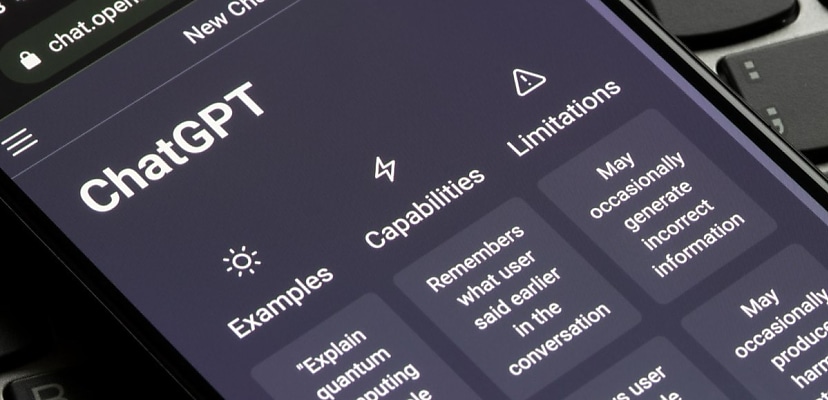Share this article on:
Powered by MOMENTUMMEDIA
Breaking news and updates daily.
AI chat tool ChatGPT is getting new features that will allow its users to have a voice conversation and share images to explain problems or ask for advice.

OpenAI made the announcement this week, revealing the new functionality will roll out to ChatGPT Plus and Enterprise users within the next two weeks. Voice and chat will come to other users not long after.
The voice functionality does basically what it says on the tin – you’ll be able to ask ChatGPT a question and have it answer you in what OpenAI calls a “back-and-forth conversation”.
The feature uses a text-to-speech model based on audio from five voice actors, and you can pick the voice you’re most comfortable with.
Using text-to-speech in this way is not without its pitfalls, though – OpenAI is well aware of the capacity to create voice deepfakes.
“This is why we are using this technology to power a specific use case – voice chat,” OpenAI said in a statement. “Voice chat was created with voice actors we have directly worked with.”
OpenAI is also working with Spotify so that podcasters can use the same technology for language translation.
The image input is designed to add another dimension to querying ChatGPT. By way of example, OpenAI says you’ll be able to take a photograph of your fridge, and ChatGPT will be able to tell you what you can make from what’s in there, as well as how to make it.
Again, OpenAI is aware of some of the issues such a feature might have.
“Prior to broader deployment, we tested the model with red teamers for risk in domains such as extremism and scientific proficiency, and a diverse set of alpha testers,” OpenAI said. “Our research enabled us to align on a few key details for responsible usage.”
According to OpenAI, the key to these AI challenges is to roll out features slowly, which lets the company “make improvements and refine risk mitigations over time while also preparing everyone for more powerful systems in the future”.
“We’ve also taken technical measures to significantly limit ChatGPT’s ability to analyse and make direct statements about people since ChatGPT is not always accurate and these systems should respect individuals’ privacy.”
At the same time as OpenAI has begun to tout its new AI features, one influential commentator has taken aim at why AI is so popular with some businesses, especially when it comes to monetising data.
“It requires the surveillance business model; it’s an exacerbation of what we’ve seen since the late ’90s and the development of surveillance advertising. AI is a way, I think, to entrench and expand the surveillance business model,” said Meredith Whittaker, president of messaging app Singal.
“The Venn diagram is a circle,” she added, speaking at TechCrunch Disrupt 2023.
“And the use of AI is also surveillant, right?” she said.
“You know, you walk past a facial recognition camera that’s instrumented with pseudo-scientific emotion recognition, and it produces data about you, right or wrong, that says, ‘You are happy, you are sad, you have a bad character, you’re a liar, whatever’. These are ultimately surveillance systems that are being marketed to those who have power over us generally: our employers, governments, border control, etc, to make determinations and predictions that will shape our access to resources and opportunities.”

David Hollingworth has been writing about technology for over 20 years, and has worked for a range of print and online titles in his career. He is enjoying getting to grips with cyber security, especially when it lets him talk about Lego.
Be the first to hear the latest developments in the cyber industry.